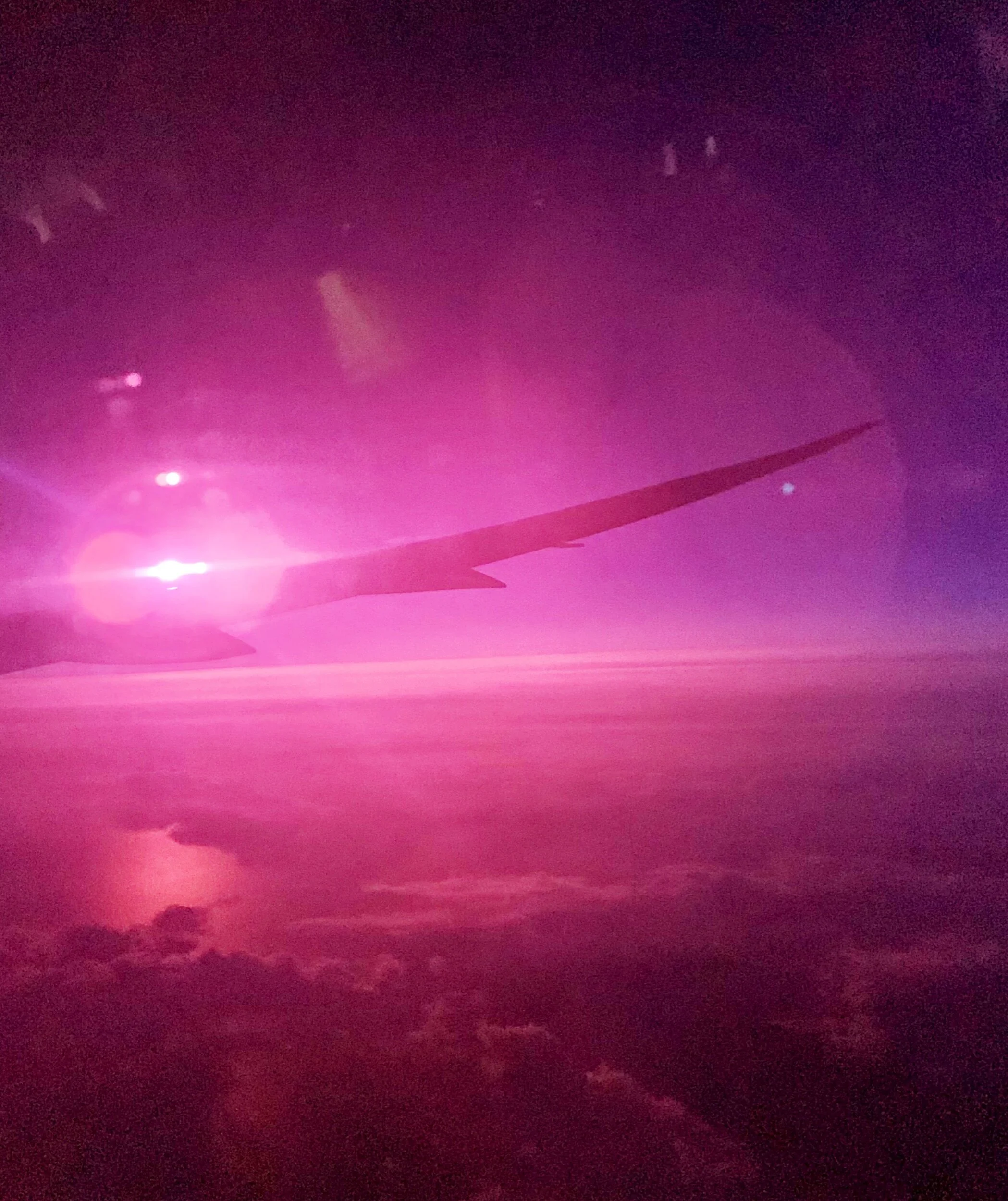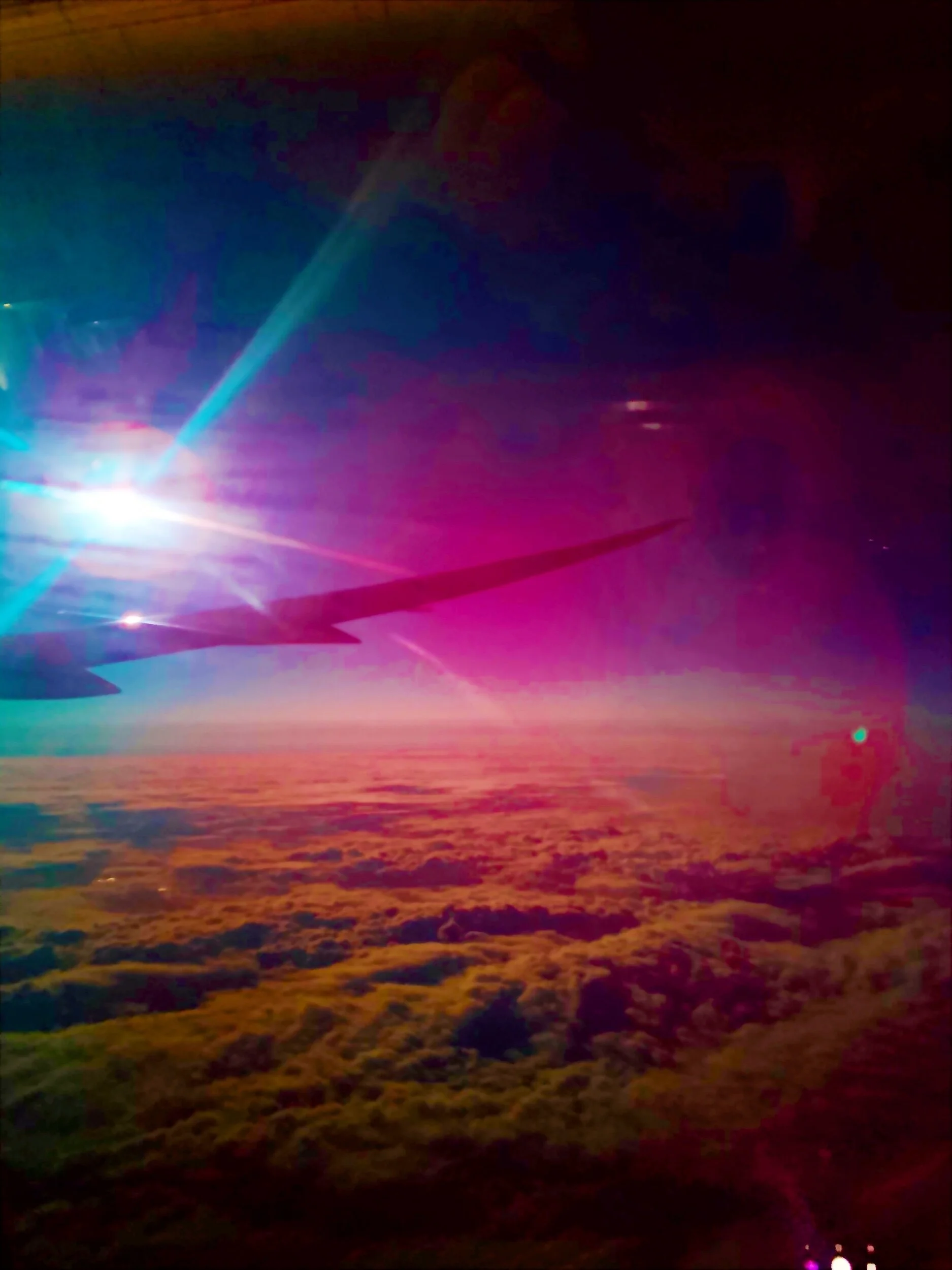2025: Pain has a Purpose
1. Pain has a purpose: It reveals how much you care.
The train pulled into Paddington station and I deboarded. The London crowds rushed past me on the platform like a wave as I tried to catch it. But I couldn’t. I stopped dead in my tracks as the sea of commuters intuitively parted and converged around me. I keeled over gripping my stomach in agonising pain. In my hot pink blazer and with my new briefcase-folio (that I purchased specially for this conference), I was not the strong, confident business woman I set out to be this Friday morning.
You see, I had been in pain since Wednesday. On Thursday, 111 offered to send me an ambulance and my GP said to get myself to A&E. But I was determined to make it to this conference. It was my first networking event of 2025, and an important one at that. The connections I made there could be the golden ticket for my business. I was meant to meet partners, close deals, perform market research, and generate new leads. Not to mention, I am due to exhibit at this event next year so I needed to get a feel for it so I could plan accordingly. I needed this event to go well this year. I needed my business to go well this year. So I told myself to push through the pain, attend the event, and then go to A&E.
2. Pain has a purpose: It forces you to change.
I walked slowly, hunched over like a turtle down the station platform, still gripping my stomach. I just had to sit. I made it to the Wasabi restaurant inside the station and ordered miso soup–my favourite comfort food. I sat down and had a couple sips. It hurt. I tried to chew a piece of seaweed and I was almost sick, coughing and gagging, eyes watering. I had an online meeting that was meant to start one minute ago so I opened my laptop and took a deep breath. The meeting was labelled in the calendar:
Introducing Inspiring Changemakers
I was scheduled to introduce two of the UK’s leading female CEOs known for their work in social impact through business ventures. As a female founder myself, they saw something in me and have started working with me on mutual events and opportunities. While I listened to them speak the same language of futurism and action and resilience, I weighed my options: Do I continue to ignore my own pain? Or do I change my conference plans and go straight to A&E?
3. Pain has a purpose: It signals to others that you need help.
My new colleague and friend, Esther, met me at Paddington station shortly after my meeting. I told her my situation and I asked her to get me codeine from the Boots next store so that I could get through this conference on two feet. She didn’t think the codeine was a good idea and she took a moment to pray for me. I then suggested she could go to the conference without me while I went back on a train to Oxford and get a cab to John Radcliffe Hospital. She insisted that she wouldn’t leave me and that we could go back together. I thought about how much this conference, this business meant to me, and I decided we will just go for an hour then get back on the train home so I can go to the hospital.
We started walking to the Elizabeth Line. I made it about 20 steps before I couldn’t walk anymore. The conference was just one tube ride away. We were so close. I was sweating and frustrated. Esther remained sweet and suggested we go to the toilet. I managed to get there, very slowly. In the stall I looked at my stomach and saw redness and that it was quite swollen. My worry and my will were battling it out while I heard Esther on the other side of the stall door, “Bri… I got a first aid responder here.” I came out and showed him my stomach. He told me there was a hospital right next to the train station and he can take me there in a wheel chair. I began to cry as I succumbed to defeat and graciously accepted their help.
4. Pain has a purpose: It brings people together.
There are few places in the world that is as diverse as a London hospital. No matter what class, skin colour, gender, nationality, mental fitness, or physical fitness you are in––there is a place for you to sit and be tended to.
Richard is a Pastor-Comedian. He wore a t-shirt that said “REVIVAL. REVIVAL. REVIVAL.” Everything he said sounded like a punchline, even if there wasn’t one. He walked around A&E cheering people up with jokes. I met him at 12pm, and by 8pm I realised he was walking around with no shoes on and that he had two security guards following him. In hindsight, the security guards had always been there. I just thought they were patrolling the halls. But they were patrolling him. He shouted through the night and kept me awake until I was moved to the Acute Medical Unit where I finally got a proper bed at 6am.
Karen was the sweetest roomie. Her belly was swollen like she was 38 weeks pregnant at 81 years old. We exchanged names, then she said, “Don’t drink.” I thought she meant the water that we were just given. Is she another patient with mental issues? Then it clicked. “Oh you mean alcohol?” She said that’s what got her in here and referenced her liver. She started to ask what brought me in, then stopped herself and apologised as if there was an unspoken rule that you’re not supposed to ask what brought people in, like we were in prison or something. By the time I said goodbye they had drained 5 litres of fluid and her belly went back down to size.
Tiny had the most visitors. She didn’t speak but her guests seemed full of life.
There was a man down the hall. I noticed him when he was speaking a bit rudely to the nurse at the nurse’s station. She was explaining something and he interrupted her with a direct “Why?” He was wearing a leather jacket and had great hair. I watched him as he returned to sit next to an old woman who I had only gotten glimpses of before they pulled the curtain to cover her. But I could still see him next to her bed all day and night, talking. He went back to the nurses station and advocated for the nurse to give his mother more medication, “She’s in a lot of pain.” He was kinder this time. “I think her urine needs draining as well.” He spoke calmly but when he returned to sit, his leg became restless.
5. Pain has a purpose: It is the gateway to healing.
If there is a place called “Healing”, then there must be guides who lead you there. Salu, Alphons, Mark, are just a few of the names of my nightingales. The Nurse in Charge, Finda, remembered me from her previous shift when I was checked into the AMU. She was kind and powerful. Her turban matched her navy blue scrubs.
Finda pushed me and my bed to the Douglas Ward by herself as we couldn’t find any porters. It was a bumpy and amusing ride. Then Olu was my new nurse. I guessed she was Nigerian. Guessing which country a person is from can be risky, especially as a white person. I told her my business partner, Will, was Nigerian and I knew by her name and accent. I showed her the story of Drone City and our Nigerian and Nigerian-British protagonists. I told her that I had been researching Nigerian culture and accents and I bounced what I had learned off her, which made her laugh that familiar belly laugh that elevates the entire room. I told her about how Will and I’s goal was to raise aspirations in young people through educational storytelling and make aerospace and AI careers more accessible to underrepresented groups. She told me I was changing the world. She repeated it with her full chest. It healed something in me.
6. Pain has a purpose: Despite the original cause often remaining unknown.
I originally thought it was cramps from a stomach flu. Then I thought I had damaged my stomach lining from all the ibuprofen I took. Then the doctors told me it was likely my appendix. Then they told me it was gastroenteritis. Then they told me peritonitis. I worry as Crohn’s disease and diverticulitis run in my family. Perhaps it was just an unidentified, aggressive bug that got the better of me.
At the end of the day, pain can feel senseless and inconvenient. At least to me it does. I know it has a purpose, but we often just ignore it, don’t we? Hope it goes away on its own. Perhaps if we just hook ourselves up to 18 sets of antibiotics, it’ll be on its way and we can be on ours. I remember my first heartbreak was like that. I was 29. I hated the physical and mental pain. I just wanted to kick it out, but it couldn’t fit through the door. I had to wait and wait and allow time to soften it and calm it down into a size where, finally, it was small enough to leave. Nowadays it just sits out in the back garden reading a book, giving the occasional nod and wave through the kitchen window while I’m washing the dishes at the sink.
For 2025, my resolution is to stop ignoring my pain, physical and mental, and try to listen to its purpose, allow it to guide me to where I need to go. Away from what isn’t meant for me, toward what is meant for me, or perhaps it will guide me to stop. Rest. Look around. Forage the dirt for smiles and flowers. Listen to the music of birds falling in love. Say hello to Mother Gaia and feel her gentle kiss on my forehead. Pray for my loved ones and send them blessings from the depths of my spirit. Remember how connected I am to all things, earth, water, sky, interstellar, through our interwoven loving and breaking and birthing and dying. The tapestry is always changing but our memories are still firm to the touch. Remember how the poetry of atoms are always reciting new verses about old things. If I just stop to listen, even from this hospital bed, I could hear the truth that has been chasing me for so long:
Remember who you are.





